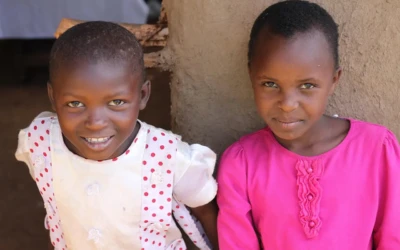While many people are attracted to the humanitarian sector, working for NGOs is more difficult than you might think.
Increasingly specialised, these charitable organisations are looking for professionals with international knowledge and real field experience.
For you, we take stock of these profiles which are highly sought after by NGOs.
Overview of the NGOs
NGOs are humanitarian organisations that are mainly financed by private donations and institutional donors.
Of public interest, NGOs are independent of political authorities and have a universalist vision. They act mainly in the poorest countries, at war or victims of disasters, on multiple activities: medical assistance, technical assistance, relief, aid to the most destitute…
Some NGOs also work in favour of human rights or even the environment and health. Some of the best known include Amnesty, Greenpeace, Médecins du Monde and Première Urgence Internationale.
There are now nearly 30,000 non-governmental organisations throughout the world, 6 times more than 30 years ago!
Working for NGOs: motivation but not only !
Nowadays, more and more young people entering the job market want to give meaning to their work by moving into the humanitarian sector. This incredible experience within humanitarian organisations combines the desire to help, the pleasure of travelling and personal convictions.
Even though there are many non-governmental organisations in the world, they have greatly evolved since the 1980s. If they used to accept all the good will and skills to help people in the third world, NGOs have now become more professional.
Despite their status, NGOs have developed to such an extent that they now recruit experienced employees to coordinate their actions in the field and carry out the various projects throughout the world.
More than ever, these associations with special status, are looking for professionals with specific skills to respond to very precise missions. While motivation is an essential quality sought by recruiters, solid experience and project management skills are essential to ensure that operations run smoothly.
Indeed, once in the field, NGO employees must be able to deal with the most critical situations and have strong shoulders to manage them.
NGOs are looking for specialised profiles
The NGO sector is becoming more professional every day and professionals specialising in particular fields are in high demand. Depending on the organisations and their areas of intervention (health, disability, education, environment, human rights, etc), the profiles sought vary.
Many higher education schools now offer professional training courses in the humanitarian field.
While NGOs working in the health sector are looking for doctors, nurses, surgeons, etc., those working in construction are looking for engineers, site managers, mechanics, etc., more traditional and administrative profiles are also in great demand to ensure their functioning.
Technical and operational profiles in the field
Obviously, non-governmental organisations are looking for highly qualified technicians, specialists that they can send into the field in direct contact with the populations.
In countries affected by natural disasters, they will have a greater need for first aid workers and doctors in the first instance. But engineers and site managers will very quickly be needed to rebuild infrastructures with the local populations.
For longer-term projects in developing countries, industrialisation and the construction of electricity, drinking water, sanitation and waste treatment networks will require engineers, but also mediators and trainers for the local population.
Although NGOs are currently receiving many donations to finance their humanitarian projects, individuals and companies are waiting for the projects they have completed to continue over time. The necessary training and support provided enable these projects to be sustainable.
The support functions for running the machine
In addition to these technical profiles, which are much sought-after for actions in the field, these organisations have major needs at headquarters to ensure support functions.
Specialists in law and international relations are among the profiles most sought after by NGOs because they have a great knowledge of the world and geopolitics. They are invaluable assets for managing projects and establishing relations with different countries.
Moreover, their technical and political knowledge of the field enables them to second or expatriate their employees and volunteers in the best possible conditions.
Other trades are also essential to the smooth running of these organisations. These include human resources, financiers, lawyers and also communicators, who play a major role in promoting actions carried out in the field and collecting donations.
In recent years, NGOs have been undergoing a real digital transformation in order to reach more potential donors and make their missions better known.
To do this, more digital profiles are also much sought after to ensure their web presence: developers, digital project managers, web marketers, data specialists…
Experience and commitment
Although the profiles sought by NGOs are very numerous and depend a lot on their main mission, not everyone can integrate these organisations easily.
Solid field experience is essential to be able to work for them. Therefore, long experience of volunteering in humanitarian associations or the Volunteering for International Solidarity (VSI, in French) are real assets on the CV.
Volunteers who have spent 12 to 24 months abroad are better prepared for difficult living conditions and have solid experience working with vulnerable populations.
These profiles are preferred by NGOs because they are able to be very quickly operational in the field and are able to manage the situation without being overwhelmed by events. The reality in the field can be different from the idea that young people have of the humanitarian sector…
To ensure their safety in the field, NGOs do everything possible to protect their teams. Depending on the country, military protection is organised with the authorities or the UN. For their health or in the event of an accident, employees are covered by international insurances that provide coverage for medical care or medical repatriation.
Last Articles :
DIHAD 2021 Highlights – Ambrelia
Expatriation and New life : How to prepare and help children to integrate ? – Ambrelia





